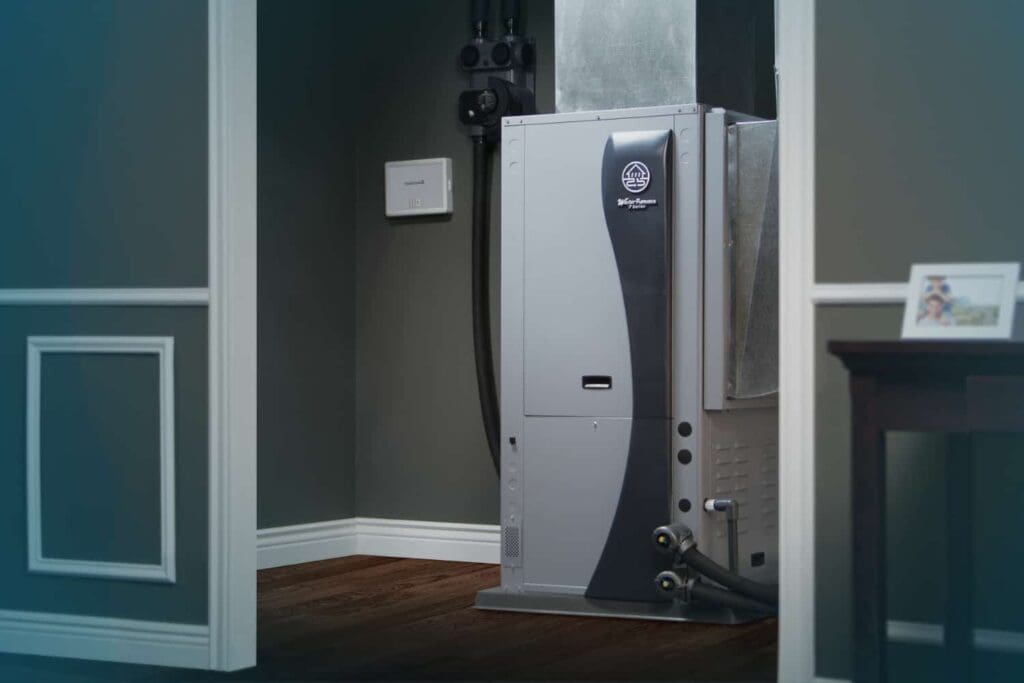Heat pumps can be energy-efficient when compared to traditional heating and cooling systems that burn fossil fuels. Heat pumps work by transferring heat from the air or ground outside to the inside of your home, which can be a more energy-efficient method of heating compared to traditional furnaces or boilers that burn fuel to create heat.
The efficiency of a heat pump is measured by its Coefficient of Performance (COP), which represents the ratio of heat produced by the system to the electrical energy consumed. The higher the COP, the more energy-efficient the heat pump.
In general, air-source heat pumps tend to have lower COPs in colder climates, while ground-source heat pumps tend to be more efficient across a wider range of temperatures. However, both types of heat pumps can be very efficient in moderate to warm climates.
To ensure that your heat pump operates at peak efficiency, it’s important to have it installed correctly and to properly maintain it. Regular maintenance, including cleaning or replacing filters, checking refrigerant levels, and inspecting the system’s components, can help ensure that your heat pump is running as efficiently as possible.
Overall, heat pumps can be an energy-efficient heating and cooling solution, especially in moderate to warm climates. However; the efficiency of a heat pump depends on several factors, including the climate in your area, the type of heat pump, and how well it is installed and maintained.

